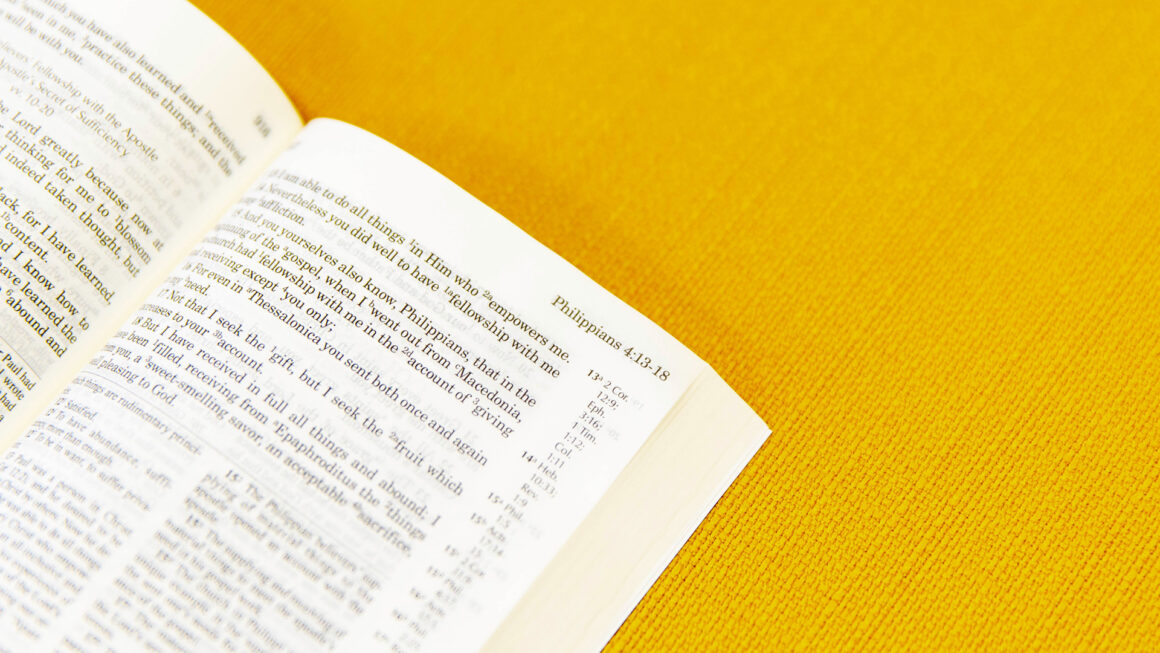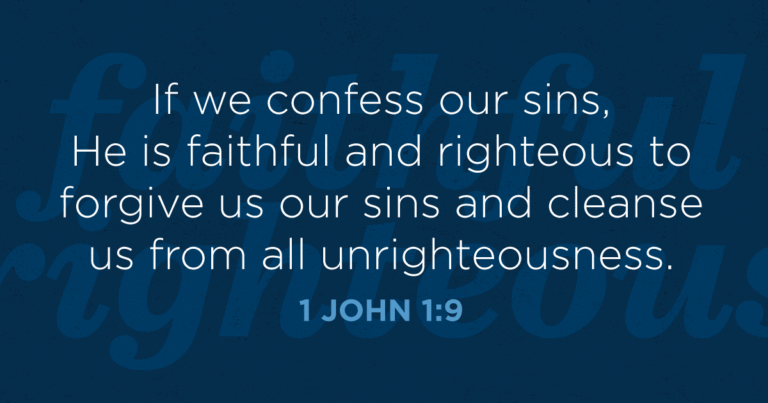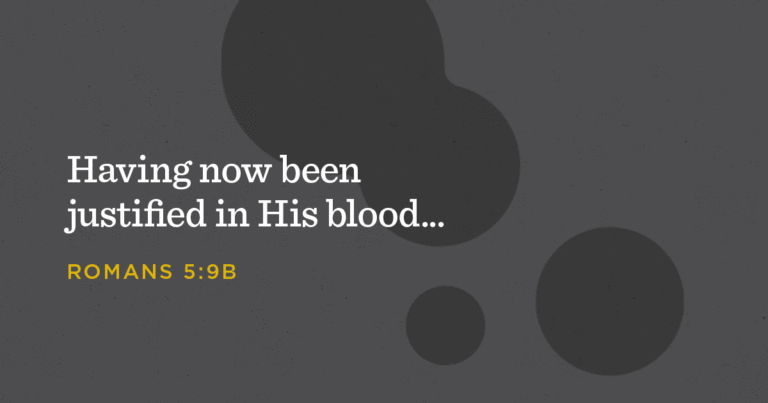What Do I Do When I Sin after I’m Saved?

Originally posted on the Bibles for America Blog.
When we first repented to God and received Jesus Christ as our Savior, we were forgiven of all our sins and saved from judgment. We were filled with joy and peace!
But though we’re saved, we still commit sins. The fact that we sin after we’re saved doesn’t mean our salvation isn’t real or eternally secure. The Bible assures us that it is, so we don’t need to be saved all over again.
But then what should we do when we sin? On God’s side, He can’t simply overlook or ignore the sins we commit. And on our side, we’re weighed down with guilt after we do something that offends God. In this post, we’ll read key passages from the Bible that show us how we can apply God’s provision for us when we sin after we’re saved.
Why do we sin after we’re saved?
First, let’s talk about why we sin even after we receive the Lord.
God created human beings with a spirit, soul, and body. God’s original intention for Adam, representing all mankind, was for him to receive God’s divine life by eating the tree of life in the garden of Eden. But instead, Adam disobeyed God and took in the evil nature of Satan by eating of the tree of the knowledge of good and evil.
The terrible consequences of Adam’s disobedience are still with us today. One consequence was that the pure body God created was polluted and became the flesh, full of lusts and inclined to sin.
When we were born again, we received the divine life of God in our spirit. But our fallen body is still the sinful flesh.
Galatians 5:16 says:
“But I say, Walk by the Spirit and you shall by no means fulfill the lust of the flesh.”
Paul wrote these words to believers in Galatia. This shows us that we still have the fallen flesh with its lusts even after we’re saved, which explains why we sin.
What should we do when we sin?
The Bible clearly tells us what we should do when we sin: we must confess our sins to the Lord.
First John 1:9, which was written to believers, says:
“If we confess our sins, He is faithful and righteous to forgive us our sins and cleanse us from all unrighteousness.”
Confessing our sins to God is indispensable in our Christian life. Now, let’s look into confessing our sins in some detail.
Why we need to confess our sins
God wants to have a loving relationship with us. But when we sin, a barrier arises between us and God, interrupting our fellowship with Him. This is because God is holy and righteous; He can’t overlook sin.
We’ve all experienced a similar interruption in our human relationships. Let’s say you speak to your friend in a hurtful way, but you never apologize. You both feel a barrier has risen between you. The passing of time doesn’t help. Unless you clear the air by apologizing, neither party can be at ease in each other’s presence.
When it comes to our relationship with the Lord, this is even more the case. We enjoy free and open fellowship with the Lord, but when we sin, our conscience tells us we’ve offended Him. The ease and sweetness in our relationship is lost; our sin is now a barrier between us. We can’t enjoy fellowship with Him as we did before.
The only way our fellowship with the Lord can be restored is by confessing our sins to Him.
What it means to confess our sins
To confess our sins means we admit and acknowledge our sins to God. We don’t cover them up, act as if we did nothing wrong, or hope that after some time passes, everything will be okay.
The writer of Psalm 32 said in verse 5:
“I acknowledged my sin to You, and I did not cover my iniquity. I said, I will confess my transgressions to Jehovah. Then You forgave the iniquity of my sin.”
So we must acknowledge our sins to the Lord and admit we’ve sinned by confessing them to Him.
But how do we know when we’ve sinned? What should we confess?
First John 1:5 says, “God is light.” When God shines on us, He exposes our sins and failures, and we become conscious of them. The resulting sense of guilt in our conscience is uncompromising. It can’t be subdued by any reasoning or excuse on our side.
In response, we agree with God’s light and His judgment on our sin by saying, “Yes, Lord, that is sin.”
But we don’t need to search ourselves or fret over whether or not we’ve done something wrong. God’s light exposes our sins. And the Lord’s shining isn’t vague but very specific. He shines on things like a lie we told, the way we spoke to someone, or our disobedience.
How to confess our sins to the Lord
We confess our sins directly to God by prayer. Whether it’s a small transgression or a serious one, as soon as we become aware of it, we must immediately admit our sin to God and ask for His forgiveness.
To do this, we don’t need to go to a certain place, tell a special person, or wait for a particular time. No matter where we are, as soon as we know we’ve sinned and offended the Lord, God wants us to confess to Him in prayer. Since He’s living in our spirit, we can confess our sins to Him anywhere, any time.
The result of confession: forgiveness and cleansing
Let’s return to 1 John 1:9 to see the result of our confession:
“If we confess our sins, He is faithful and righteous to forgive us our sins and cleanse us from all unrighteousness.”
The result of confessing our sins is that we’re forgiven and cleansed. The Lord’s blood was shed so that we could be forgiven.
Note 2 on this verse in the New Testament Recovery Version explains what it means for God to be faithful and righteous to forgive us our sins:
“God is faithful in His word (v. 10) and righteous in the blood of Jesus His Son (v. 7). His word is the word of the truth of His gospel (Eph. 1:13), which tells us that He will forgive us our sins because of Christ (Acts 10:43); and the blood of Christ has fulfilled His righteous requirements that He might forgive us our sins (Matt. 26:28). If we confess our sins, He, according to His word and based on the redemption through the blood of Jesus, forgives us because He must be faithful in His word and righteous in the blood of Jesus; otherwise, He would be unfaithful and unrighteous. Our confession is needed for His forgiveness. Such forgiveness of God, which is for the restoration of our fellowship with Him, is conditional; it depends on our confession.”
Though our being forgiven and cleansed is based upon God’s faithfulness and righteousness, it requires our confession.
Note 3 on the same verse explains what being cleansed from all unrighteousness means:
“To forgive us is to release us from the offense of our sins, whereas to cleanse us is to wash us from the stain of our unrighteousness.”
So not only are we forgiven, but we’re even cleansed from the stain of our unrighteousness when we confess! This is how our fellowship with the Lord is restored.
Some practical examples
Let’s say your workplace has a stock of notepads and pens. Since they’re just the kind you like, you help yourself to a few for personal use at home. Later on, as you’re spending time with the Lord, He shines on you and convicts you in your conscience that you’ve taken something that doesn’t belong to you.
You could reason, “The office has plenty; they’ll never be missed.” Or, you could agree with the feeling of conviction and guilt in your conscience and acknowledge what you did was wrong.
When you decide to go along with the Lord, you can immediately admit you sinned and say, “Yes, Lord, You’re right; I’ve sinned. I confess I took those things. I’m sorry. Forgive me, Lord. Thank You for shedding Your precious blood to take away my sin. Lord, cleanse me of this sin.”
What’s required isn’t a promise to do better but an acknowledgement of your sin. After you confess, you should also make things right when necessary. In this case, you should return the items to your workplace.
As another example, let’s say you lose your temper with a family member and storm out of the room in anger. Then, later, the Lord shines on you and you realize you were wrong. You can immediately confess to the Lord: “Lord, I’m sorry I lost my temper. Please forgive me. Wash me in Your precious blood right now.” God immediately forgives you, and the barrier to your fellowship is removed.
Since you offended not just the Lord but also your family member, you also need to apologize to that person.
We might think some sins seem too small to be of concern. But we should confess whatever sins the Lord Jesus shines upon—big or small. They all matter. If we let small sins pile up, we’ll eventually find it easy to let a big sin remain unconfessed. And any sin interrupts our fellowship with God.
Confessing our sins in our daily life
Confessing our sins should be a daily matter.
Just as it’s impossible for us not to get our hands dirty in our daily lives, it’s impossible for us to go through a day and not sin in some way. We wash our hands throughout the day, whenever we notice that they’ve gotten dirty. We don’t just let the dirt accumulate. In the same way, it’s best for us to confess our sins as soon as we’re aware of them and not let them accumulate. We can experience being forgiven and cleansed several times a day.
This is how we can have a close, loving relationship with the Lord and continue to grow in Him. We encourage you to read chapter 3 in Basic Elements of the Christian Life, vol. 1 to learn more about God’s provision for our sins. You can download this free e-book from anywhere in the world for free here.
You can also read the verses and the notes from the New Testament Recovery Version mentioned in this post. If you live in Australia, you can order a free copy of this outstanding study Bible here.
Subscribe to receive the latest posts






